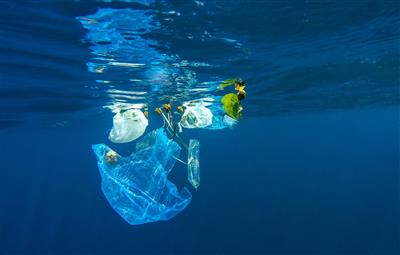Provisional plans to ban single-use plastics, agreed Wednesday by the EU institutions, target products most often found on beaches such as plates, cutlery, straws and cotton buds, and abandoned fishing gear.
According to the European Commission, more than 80% of marine litter is plastics. The products covered by the restrictions constitute 70% of all marine litter items.
The new EU directive on Single-Use Plastics envisages different measures to apply to different product categories. Where alternatives are easily available and affordable, single-use plastic products will be banned from the market. The ban will apply to plastic cotton buds, cutlery, plates, straws, drink stirrers sticks for balloons, products made of oxo-degradable plastic and food and beverage containers made of expanded polystyrene.
For products without straight-forward alternatives, the focus is on limiting their use through a national reduction in consumption, design and labelling requirements, and waste management/clean-up obligations for producers.
The provisional agreement also provides for:
- A reinforced application of the polluter pays principle, in particular for tobacco, through the introduction of extended producer responsibility (EPR)
- An EPR regime for fishing gear to ensure that manufacturers, and not fishermen, bear the costs of collecting nets lost in the sea
- A 90% collection target for plastic bottles by 2029
- A 25% target for recycled content in plastic bottles by 2025 and 30% by 2030
- Mandatory labelling on the negative environmental impact of cigarettes with plastic filters thrown in the street, as well as for other products such as plastic cups, wet wipes and sanitary napkins
The provisional agreement needs to be endorsed by both Parliament and Council to become law. The EP's Environment committee will vote on the text in January 2019.

